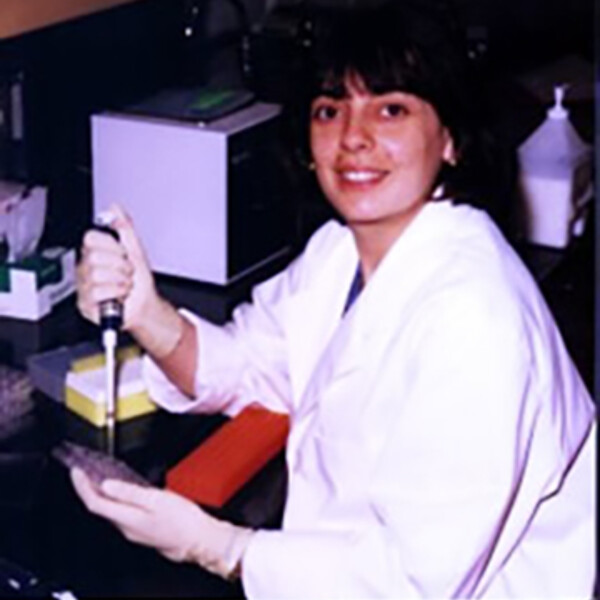Liliana Attisano
PhD, University of Toronto

Research Synopsis
Signal Transduction by members of the Transforming Growth Factor-Beta superfamily
The members of the Transforming Growth Factor-beta superfamily are related factors that regulate a variety of growth, differentiation and developmental events. Superfamily members include TGF–betas, Activins, Bone Morphogenetic Proteins and Nodals. In addition to functioning in numerous developmental processes, interference with their activity has been implicated in numerous disease processes, including human cancers.
These growth factors mediate their signals through their interactions with cell-surface serine/threonine kinase receptors. After receptor activation, signals are propagated through a related family of proteins known as Smads. Activated Smads translocate to the nucleus where they associate with a wide range of DNA binding partners and thereby regulate transcriptional activation of specific target genes.
The overall goal of my research is focussed on understanding how TGFbeta superfamily signals are propagated and how disruption of these pathways leads to human disease.
To achieve this goal we are investigating several aspects of the TGFbeta signalling pathway. In one area of focus, we are studying the function of uncharacterized mammalian and Drosophila TGFbeta superfamily members by determining their biological activities and by establishing which signalling pathway components mediate their signals. In a second major area of research, we are examining the role of Smads as the intracellular mediators of the signalling pathway. Specifically, we are investigating how Smads function in the nucleus to regulate specific activation of target genes, how they interact with other signalling pathways and how Smad protein levels are controlled by ubiquitin-mediated proteolysis. We previously demonstrated that mutations in Smad2 are associated with colorectal cancer, thus we are also examining how mutations in Smads lead to human cancer.
Recent Publications
- Eppert, K., Scherer, S.W., Ozcelik, H., Pirone, R., Hoodless, P., Kim, H., Tsui, L.-C., Bapat, B. Gallinger, S., Andrulis, I.L., Thomsen, G.H., Wrana, J.L. and Attisano, L. (1996). MADR2 maps to 18q21 and encodes a TGFß regulated MAD-related protein that is functionally mutated in colorectal carcinoma. Cell, 86 , 543-552.
- Wisotzkey, R.G., Mehra, A. Sutherland, D.J., Dobens, L.L., Liu, X., Dohrmann, C. Attisano, L. and Raftery, L.A. (1997) Medea, a Drosophila Smad4 homolog that is differentially required to potentiate DPP responses. Development, 125 , 1433-1445. p>
- Labbé, E., Silvestri, C., Hoodless, P.A., Wrana, J.L. and Attisano, L. (1998). Smad2 and Smad3 positively and negatively regulate TGFß-dependent transcription through the forkhead DNA-binding protein FAST2. Mol. Cell 2 , 109-120.
- Xu, J. and Attisano, L. (2000). Mutations in the tumor suppressors Smad2 and Smad4 lead to ubiquitin-mediated protein degradation and abrogation of TGFß signalling. Proc. Natl. Acad. Sci. USA 97 , 4820-4825 .
- Labbé, E., Letamendia, A. and Attisano, L. (2000). Association of Smads with LEF1/TCF mediates cooperative signalling by the TGFb and Wnt pathways. Proc. Natl. Acad. Sci., USA, 97 , 8358-8363.
- Attisano, L., and Wrana, J.L. (2000). Smads as Transcriptional Co-Modulators. Curr. Op. Cell Biology, 12 , 235-243.
Graduate Students
Youchen Song
Lu Wang
